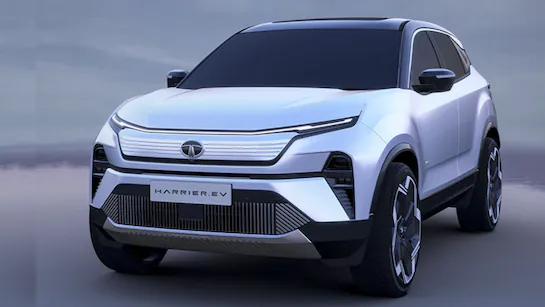In 2023, the automotive landscape is undergoing a revolutionary shift as electric vehicles (EVs), hybrids, and traditional gas-powered cars vie for dominance on the roads. Did you know that global EV sales are projected to reach a staggering 14 million units by the end of this year? This burgeoning interest in greener transportation solutions is driven by significant advancements in technology, cost efficiency, and environmental consciousness. As consumers weigh their options, understanding the key differences in cost, range, and technology advancements among these vehicle types becomes essential. In this article, we’ll explore the latest insights and help you make an informed decision about your next vehicle purchase.
Cost Comparison: EVs, Hybrids, and Gas Cars
When it comes to purchasing a vehicle, cost is often the deciding factor. Here’s how EVs, hybrids, and gas-powered cars stack up in 2023:
Initial Purchase Price
- Electric Vehicles (EVs): EVs like the Tesla Model 3 and the Nissan Leaf are becoming more affordable, with prices starting around $35,000. Thanks to government incentives, such as the federal EV tax credit in the United States, the effective cost can be even lower.
-
Hybrids: Models like the Toyota Prius typically fall in the $25,000 to $30,000 range. Hybrids offer a balance between upfront cost and fuel efficiency, making them an attractive option for budget-conscious buyers.
-
Gas Cars: Traditional gas-powered cars often have the lowest initial purchase price, with many models available for under $20,000. However, this initial savings can be offset by higher long-term fuel and maintenance costs.
Long-term Cost of Ownership
-
EVs: While the initial cost of an EV might be higher, the savings on fuel and maintenance can make it a cheaper option in the long run. According to Bloomberg Green, electric vehicles can save owners up to 60% on maintenance costs compared to gas cars.
-
Hybrids: Hybrids offer moderate savings on fuel and maintenance, sitting comfortably between EVs and gas cars in terms of long-term cost efficiency.
-
Gas Cars: Despite their lower initial cost, gas cars tend to incur higher fuel and maintenance expenses over time, diminishing their cost advantage.
Range: How Far Can You Go?
The range is a critical consideration for any vehicle purchase, especially for those planning long journeys.
Electric Vehicles (EVs)
Thanks to advancements in battery technology, many EVs now boast impressive ranges. The Tesla Model S, for example, offers over 370 miles on a single charge. However, range anxiety still persists among some drivers, particularly those without easy access to charging infrastructure.
Hybrids
Hybrids like the Hyundai Ioniq Hybrid offer a combined gas and electric range of over 600 miles, providing the flexibility of gas refueling with the efficiency of electric driving for shorter trips.
Gas Cars
Gas vehicles provide the most extensive range without the need for frequent stops, making them ideal for long-distance travel where charging stations are sparse.
Technology Advancements: What’s New in 2023?
Electric Vehicles (EVs)
EVs are at the forefront of automotive technology, featuring:
- Autonomous Driving: Brands like Tesla continue to lead with Full Self-Driving capabilities, making significant strides in autonomous vehicle technology.
-
Smart Charging Solutions: Companies like Rivian and Lucid Motors are rolling out advanced charging networks, offering faster and more convenient charging options.
-
Battery Innovations: Innovations in solid-state batteries from companies like QuantumScape promise higher energy density and faster charging times, as reported by MIT Technology Review.
Hybrids
-
Improved Fuel Efficiency: Modern hybrids have enhanced regenerative braking systems, improving fuel efficiency and reducing emissions.
-
Seamless Transition: The transition between electric and gas power has become smoother, thanks to advancements in engine management systems.
Gas Cars
While gas vehicles may lack cutting-edge electric technology, they continue to benefit from improvements in fuel efficiency and emissions reduction, keeping them relevant in today’s market.
Practical Tips for Choosing the Right Vehicle
- Assess Your Driving Habits: If you mostly drive short distances, an EV might be ideal. For mixed driving or longer commutes, consider a hybrid.
-
Consider Charging Infrastructure: Ensure you have access to charging stations if opting for an EV. Research local and national charging networks for convenience.
-
Evaluate Long-term Costs: Factor in fuel, maintenance, and potential tax incentives when calculating the total cost of ownership.
-
Environmental Impact: If sustainability is important to you, EVs and hybrids offer significant benefits over gas cars in reducing carbon emissions.
Conclusion: Navigating the Future of Transportation
In 2023, the choice between EVs, hybrids, and gas cars depends on a variety of factors, including cost, range, and technology. Electric vehicles lead the charge with advanced features and lower long-term costs, while hybrids offer a balanced approach. Gas cars, though traditional, continue to provide reliable long-range travel. As we look to the future, the automotive industry is poised for further innovation, with electric and hybrid technologies becoming increasingly mainstream. What type of vehicle will you choose for your next journey? Share your thoughts in the comments, and stay tuned for more insights into the evolving world of sustainable transportation.

